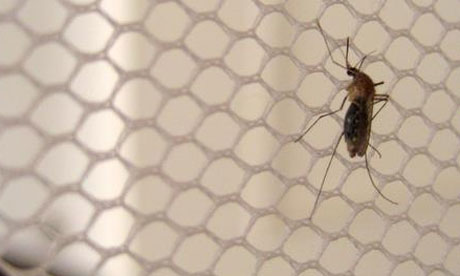
Research offers hope for treatment - but prevention is better than cure, says Dr Jane Wilson-Howarth
In the early 1980s I worked on studies aiming to understand how malaria damages blood vessels and thus causes the dreaded cerebral malaria. I looked at how parasite-loaded red blood cells clump against arterial walls – especially in the brain – and trigger leakage. We didn’t get very far in our research.
Work recently published by researchers in Melbourne identified the substance responsible for making infected red blood cells sticky. Being tacky is the parasites’ survival strategy: it stops the cells circulating in the bloodstream, so they avoid being filtered out by the body’s normal defences. It is now hoped that this new information might lead to the development of a medicine or even a vaccine that one day will make malaria less of a killer.
A breakthrough this might be, but the prospect of effective new treatments or vaccines is still a very long way off. A vaccine is being trialled in Mozambique by the World Health Organization (WHO); it is reducing deaths among partially immune under-fives there, but it is unlikely to be effective enough to protect travellers brought up outside malaria risk zones.
People must continue to avoid malaria through tried-and-tested means: preventing bites and taking the correct antimalarial tablets.
Protection is crucial because malaria is undoubtedly a killer: it can make people ill so very fast that it is difficult to get to a doctor in time. Evidence of this can be found in the case histories at Malaria Hotspots, an excellent place for malaria info.
The site contains a map indicating countries where there is a risk, as well as podcasts and personal accounts of what it is like to have the disease and to lose loved ones through malaria. For more detailed country-by-country health information see Fit for Travel and www.nathnac.org.
Lots of travellers, and even some doctors, think of malaria prevention as a complex subject. It isn’t.
Initially you must discover whether tablets are needed at all for your trip and, if they are, which is most likely to agree with you and your pocket. Your prescriber will discuss which may or may not be suitable for you personally. These days it is rarely good enough to buy chloroquine and proguanil (sold as Paludrine) over the counter from the pharmacy.
Last-minute travel opportunities to ever more exotic destinations make it increasingly important for travellers to know enough to keep themselves safe from malaria. People brought up in malarious regions and those who have travelled widely in the past often believe they must have acquired immunity.
Any such immunity is only partial (it probably prevents rapid death, but not illness); more importantly, it wanes completely after only six to 12 months – even Africans returning after a couple of years away are at big risk of contracting severe and life-threatening malaria. I would hope, however, that a returning traveller might be alert to the early symptoms and would know where to find competent clinical services.
It is not to be taken lightly or merely brushed aside as you sip your gin and tonic. It requires an intelligent approach with good bite-prevention precautions and an antimalarial tablet that you can tolerate and take as prescribed. Psychologically, you need to commit to taking the pills so it is crucial to identify a type that doesn’t upset you. Personally, I think Lariam is best.
>> Britain is one of the biggest importers of malaria among industrialised countries, with a fairly constant rate of about 2,000 cases a year.
>> Malaria can kill within 24 hours of the first symptoms.
>> Malaria can hit any time from about a week and up to a year after being bitten by an infected mosquito.
>> Children and pregnant women are at increased risk of severe and fatal malaria.
>> Malarious mosquitoes wake up hungry at dusk and hunt at ankle-level.
>> Protecting yourself with DEET-based insect repellents will make mosquitoes look elsewhere for a meal – they are as happy feeding off a cat or gecko.
>> Clothes sprayed with permethrin retain their repellency for a couple of weeks.